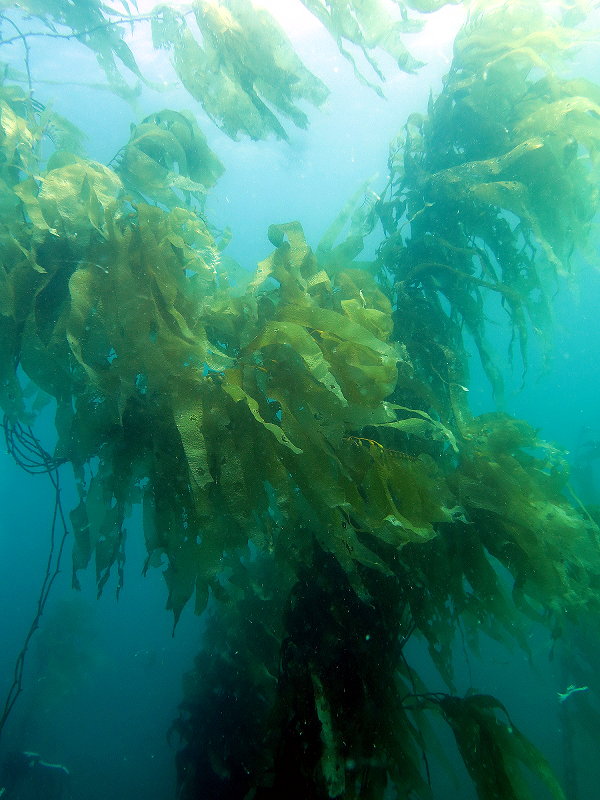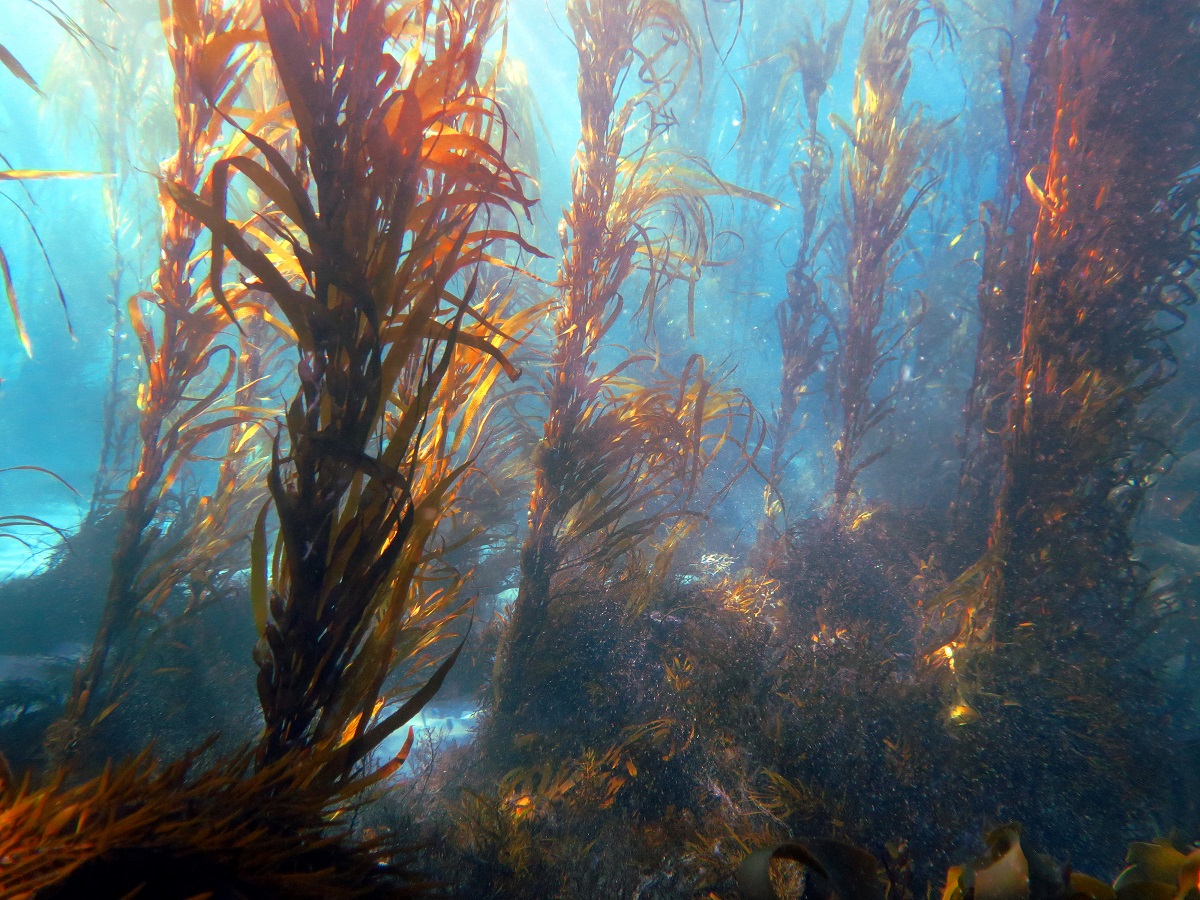
A new kelp restoration guidebook launched this month shares lessons learned from projects in Tasmania and around the world. The vision: to cultivate a global alliance of restoration practitioners who will work together to ensure kelp forests flourish in our planet’s changing seas.
Institute for Marine and Antarctic Studies (IMAS) marine ecologist Dr Cayne Layton is one of the lead authors of The Kelp Restoration Guidebook. He acknowledges that, while the science and practice of kelp forest restoration is still relatively new, there is much to be learned and shared from projects and collective successes around the world.
“This guidebook brings together projects that have, until now, often been disconnected and had limited opportunities for knowledge sharing,” Dr Layton said.
“It is an important step to promote collaborative and science-based attempts at kelp restoration, where all stakeholders and custodians are engaged in decision-making – and where even short-term failures can provide lessons and help deliver future successes.”
In recent years, much of Dr Layton’s research has focused on restoring Tasmania’s once flourishing giant kelp forests.
“Dense giant kelp forests used to be a prominent and iconic feature of the Tasmania coast, but coverage of these giant kelp canopies has declined by around 95% since the 1950s.
“Those losses are associated with ocean warming, and the changing climate and oceanography in Tasmania,” he said.
“As part of our restoration efforts, we’ve identified individual giant kelp from remnant patches in Tasmania that are naturally more tolerant of warmer waters, and it’s those ‘super kelp’ that we’re using as the foundation for some of our replanting efforts.
“While it’s still quite early days for our research, we have planted kelp at Fortescue Bay and Trumpeter Bay that have reached over 10 metres tall in just 18 months, and are also reproductively mature.”
The guidebook includes a case study by IMAS researchers, Dr John Keane and Dr Scott Ling, that provides insights into managing the problematic long-spined sea urchin Centrostephanus rodgersii in Tasmania, and how the local urchin fishery may be able to support kelp restoration efforts.
These and more lessons in the guidebook, which represents two years of work from an international team of more than 50 experts across 45 organisations, from every kelp growing region of the world. It is also an official product of the UN’s Decade of Ocean Science for Sustainable Development.
 Dr Layton acknowledged IMAS marine ecologist Professor Craig Johnson, whose work is cited throughout the guide. “Prof Johnson has contributed decades of research on kelp forests and rocky reefs.
Dr Layton acknowledged IMAS marine ecologist Professor Craig Johnson, whose work is cited throughout the guide. “Prof Johnson has contributed decades of research on kelp forests and rocky reefs.
“His work has been critical to developing much of the theory and practice around kelp forest ecology and restoration globally.”
Dr Layton said the Kelp Restoration Guidebook will be an important starting point for practitioners, researchers, managers and custodians to learn about the vital steps involved in kelp restoration and to access an active community of practice.
“Our vision is to improve collaboration and drive successful outcomes for future restoration projects – in Tasmania and around the world.”
The Kelp Restoration Guidebook is an official product of the UN’s Decade of Ocean Science for Sustainable Development. It became a reality under the leadership of The Nature Conservancy California Oceans Program and lead authors, Mr Aaron Eger from the University of NSW, and Dr Cayne Layton from IMAS and the Centre for Marine Socioecology (CMS) at the University of Tasmania.
Images:
Published 9 May 2022